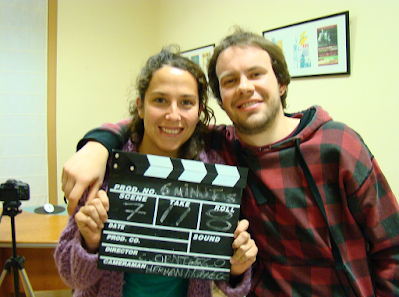Cualquier profesional sanitario sabe que una parada cardiorrespiratoria es un chungo. Y que nuestra sanidad está en estos momentos más de UCI que de consulta externa. Por mi parte coincido con muchos compañeros en que la Atención Primaria está en muerte técnica tras penosa enfermedad y larga agonía, y ahora ¿qué hacemos?
Lo primero pedir ayuda, pero como algunos llevamos dando gritos desde hace años y parece que esto sirve de poco habrá que hacer algo más. Propongo rescatar el clásico ABC de las urgencias: abramos la vía aérea, ventilemos y hagamos compresiones torácicas.
La vía aérea está cerrada. Por el cabreo, el cansancio, el agotamiento, la ansiedad, la tristeza, la incapacidad de aguantar tanta presión, por el maltrato institucional, por la desidia de los políticos, por la fatal de liderazgo de los gestores intermedios, por nuestra incapacidad para ponernos de acuerdo, por la impotencia para que se nos tenga en cuenta...
Para abrirla tendremos que reconocer que los tejidos están muy inflamados y meter con cuidado un tubo rígido que deje entrar el aire. Ese tubo son los valores, la ética, el ejemplo de nuestros maestros y compañeras que se han dejado la piel, incluso llegando a perder la vida. Apoyémonos en ellos.
Ventilar es meter aire y no hay mejor aire que la ilusión, la esperanza, la certeza de que tras este mare magnum vendrán tiempos mejores, la sensación de que no estamos solos, estamos rodeados de equipos que nos quieren y valoran, de una población que nos conoce, necesita y cuenta con nosotros. El aire de saber que somos custodios de una profesión cuya misión es cuidar, ayudar, proteger, acompañar a los más vulnerables, aquellos que padecen enfermedad, dolor o sufrimiento.
Y ponernos a aportar golpes de energía a un tórax bloqueado para volver a conseguir latido. Comprimir con todas nuestras fuerzas para poder levantarnos de la cama un día mas, para cubrir otro turno de servicio, para seguir sirviendo en nuestro puesto. Seguir dándolo todo para que lo fundamental no quede sin hacer, para que nuestras comunidades puedan seguir sintiéndose seguras.
Y mientras ventilamos y comprimimos alguien tendrá que seguir pidiendo ayuda. Tal vez con una llamada a la alcaldesa o a gente del barrio, tal vez compareciendo ante los medios de comunicación, a lo mejor escribiendo un comentario en redes sociales, publicando un blog, filmando un vídeo con amigos. Crear una narrativa que explique lo que hacemos y anime a la sociedad a defender su Atención Primaria como servicio esencial que es.
Sin ayuda nuestro paciente no saldrá de la parada. Si tú como lectora o lector de estas palabras no te pones a ello el paciente se nos va, se nos va para siempre.
Foto del rodaje del documental Seis minutos
Primary Care Cardiopulmonary Resuscitation
Any healthcare professional knows that a cardiorespiratory arrest is a doddle. And that our healthcare system is currently more in the ICU than in outpatient care. For my part, I agree with many colleagues that Primary Care is dying a technical death after a long and painful illness, and now what do we do?
The first thing is to ask for help, but as some of us have been shouting for years and it seems that this is of little use, we will have to do more. I propose to rescue the classic ABC of emergencies: open the airway, ventilate and do chest compressions.
The airway is closed. Because of the anger, the tiredness, the exhaustion, the anxiety, the sadness, the inability to withstand so much pressure, because of the institutional mistreatment, because of the laziness of the politicians, because of the fatal leadership of the middle managers, because of our inability to agree, because of the impotence to be taken into account...
To open it we will have to recognise that the tissues are very inflamed and carefully insert a rigid tube that lets air in. That tube is the values, the ethics, the example of our masters and companions who have left their skin, even to the point of losing their lives. Let's lean on them.
To ventilate is to put in air and there is no better air than the illusion, the hope, the certainty that after this mare magnum better times will come, the feeling that we are not alone, we are surrounded by teams that love and value us, by a population that knows us, needs us and counts on us. The air of knowing that we are the custodians of a profession whose mission is to care for, help, protect and accompany the most vulnerable, those who suffer from illness, pain or suffering.
And to start giving energy to a blocked chest in order to get a heartbeat again. Compressing with all our strength to be able to get out of bed one more day, to cover another shift of service, to continue serving at our post. To continue to give everything so that the fundamental things are not left undone, so that our communities can continue to feel safe.
And while we are airing and compressing, someone will have to keep asking for help. Maybe with a call to the mayor or to people in the neighbourhood, maybe by appearing before the media, maybe by writing a comment on social networks, by publishing a blog, by filming a video with friends. Create a narrative that explains what we do and encourages society to defend its Primary Care as the essential service that it is.
Without help our patient will not leave the cardiac arrest. If you, as a reader of these words, don't get on with it, the patient will leave us, she will leave forever.























